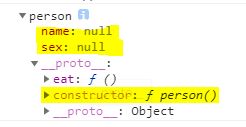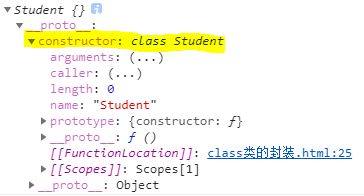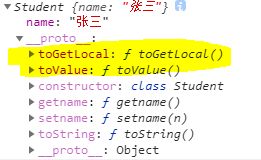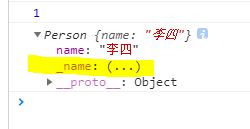- 《Java前端开发全栈指南:从Servlet到现代框架实战》
前言在当今Web开发领域,Java依然是后端开发的主力语言,而随着前后端分离架构的普及,Java开发者也需要掌握前端技术栈。本文将全面介绍JavaWeb前端开发的核心技术,包括传统Servlet/JSP体系、现代前端框架集成方案,以及全栈开发的最佳实践。通过本文,您将了解如何构建现代化的JavaWeb应用前端界面。一、JavaWeb前端技术演进1.1传统技术栈Servlet:JavaWeb基础,处
- 大学生HTML期末大作业——HTML+CSS+JavaScript传统文化
无·糖
Web前端期末大作业html课程设计css大学生前端大作业期末作业
HTML+CSS+JS【传统文化】网页设计期末课程大作业web前端开发技术web课程设计网页规划与设计文章目录一、网站题目二、网站描述三、网站介绍四、网站效果五、️网站代码六、️如何学习进步七、☠️更多干货文章目录一、网站题目传统文化精美设计5页含注册登录二、网站描述总结了一些学生网页制作的经验:一般的网页需要融入以下知识点:div+css布局、浮动、定位、高级css、表格、表单及验证、js轮
- 大学生HTML期末大作业——HTML+CSS+JavaScript游戏网站(英雄联盟)
无·糖
Web前端期末大作业html课程设计css美食游戏javascript大作业
HTML+CSS+JS【游戏网站】网页设计期末课程大作业web前端开发技术web课程设计网页规划与设计文章目录一、网站题目二、网站描述三、网站介绍四、网站效果五、️网站代码六、️如何学习进步七、☠️更多干货文章目录一、网站题目游戏网站(英雄联盟)含注册登录13页二、网站描述总结了一些学生网页制作的经验:一般的网页需要融入以下知识点:div+css布局、浮动、定位、高级css、表格、表单及验证、
- Vue3 学习教程,从入门到精通,Vue3 简介知识点及案例代码(1)
知识分享小能手
vue3前端开发网页开发学习bootstrapjavascripttypescript前端vue.jsvue
Vue3简介知识点及案例代码一、Vue3简介Vue3是一款用于构建用户界面的渐进式JavaScript框架,采用MVVM模式,具有响应式、组件化等优点,可提高开发效率,优化应用性能。二、Web前端开发概述Web前端开发涉及HTML、CSS、JavaScript等技术,用于构建用户可直接交互的页面部分。随着技术发展,出现了多种前端框架,Vue3是其中的优秀代表,基于前后端分离模式,使前后端开发解耦,
- JavaWeb开发1
偷萧逸苦茶
java
JavaWeb什么是web?全球广域网,能够通过浏览器访问的网站Web网站工作流程Web前端开发网页有哪些部分组成?文字,图片,音频,视频,超链接...我们看到的网页本质是程序员写的前端代码前端代码如何转换成用户眼中的网页?通过浏览器解析和渲染浏览器中对代码解析渲染的部分称为浏览器内核Web标准HTML:负责网页结构(页面元素和内容)CSS:负责网页的表现(页面元素外观,位置等页面样式,如颜色、大
- 基于 Three.js 与 WebGL 的商场全景 VR 导航系统源码级解析
维小帮定位导航
javascriptvr前端开发场景优化WebGL物联网智慧商场
本文面向Web前端开发者、WebGL/Three.js爱好者、对VR/AR应用开发感兴趣的技术人员、智慧商场解决方案开发者。详细介绍如何利用WebGL(Three.js框架)构建高性能的商场全景VR环境,并实现精准的室内定位与3D路径规划导航功能。如需获取商场全景VR导航系统解决方案请前往文章最下方获取,如有项目合作及技术交流欢迎私信作者。一、商场全景VR导航的核心技术概述商场全景VR导航融合了全
- 大学专业科普 | 计算机应用、视觉与算法
鸭鸭鸭进京赶烤
计算机应用
一、专业概述计算机应用专业是一门实践性很强的学科,专注于将计算机技术转化为实际应用,服务于各个行业和领域,为社会的数字化转型提供人才支撑。二、课程设置专业基础课程:包括计算机组成原理、操作系统、数据结构、计算机网络等,为学生构建坚实的理论基础。专业核心课程:聚焦于程序设计语言(如C、C++、Java、Python等)、数据库原理与应用、软件工程、Web前端开发等,使学生具备开发各类软件系统的能力。
- 基于three.js的3D粒子动效实现
cs1247959734
作者:个推web前端开发工程师梁神一、背景粒子特效是为模拟现实中的水、火、雾、气等效果由各种三维软件开发的制作模块,原理是将无数的单个粒子组合使其呈现出固定形态,借由控制器、脚本来控制其整体或单个的运动,模拟出现真实的效果。three.js是用JavaScript编写的WebGL的第三方库,three.js提供了丰富的API帮助我们去实现3D动效,本文主要介绍如何使用three.js实现粒子过渡效
- 前端面试题之常规布局技术详解
前端小崔
前端前端面试开发语言css3css学习
前端开发常规布局技术详解在Web前端开发中,布局是构建页面结构的核心环节。不同的布局方式适用于不同的场景,本文将从基础到进阶,详细解析常见的布局方案及其实现方法。一、静态布局(StaticLayout)概念:静态布局是最传统的布局方式,页面元素使用固定尺寸(如像素单位),不随屏幕尺寸变化而调整。例如,PC端网页常限制最小宽度,超出部分通过滚动条显示。优点:开发简单,兼容性高,适合传统PC端项目。缺
- Web前端开发【新手入门指南】
「已注销」
计算机网络web前端前端开发网络学习计算机网络前端前端框架html5javascript
Web前端开发入行门槛低、薪资高,是互联网行业的紧俏岗位之一。目前Web前端开发人员年薪基本都在10万以上,一线城市的薪资会更高,这也吸引了很多人进入Web前端行业。对于完全不了解行业的人来说,他们对Web前端知之甚少。下面小菌就给大家解读一下Web前端开发到底是干什么的,初学Web前端的小伙伴不容错过。Web前端开发主要用来干嘛?Web前端开发是从网页制作演变而来的,名称上有很明显的时代特征。在
- 备考1+X web前端开发-中级综合测试题-个人错题解析记录
混世黑化大魔王
1+Xweb前端开发中级综合测试题个人错题解析记录前端
1+Xweb前端开发-中级综合测试题-错题解析记录11.在php中,语句for(k=0;k=1;k++);和语句for(k=0;k==1;k++);执行的次数分别是(A)A、0和无限B、无限和0C、都是0D、都是无限关键在中间的那个条件(1)语句for(k=0;k=1;k++);$k=1;是赋值,最后就是1,一般判断条件为真假是和0做比较,0为假,非0为真,所以1就是真,符合条件,所以k被赋值0,
- web前端 java前端_web前端和Java后端有什么区别?
weixin_39534395
web前端java前端
一、前端(Frontend)1、对于web前端来说,通常是指网站的前台部分,包括网站的表现层和结构层:Web页面的结构、Web的外观视觉表现以及Web层面的交互实现。2、前端技术一般分为前端设计和前端开发,前端设计一般可以理解为网站的视觉设计,前端开发则是网站的前台代码实现。3、Web前端开发:HTML+CSS+JavaScriptAndroid终端开发:Java(开发工具:Androidstud
- html5 vue react,Web前端技术(JS,HTML5,JQuery,React,Vue.js)
Partfolio
html5vuereact
Web前端框架概览Web前端技术架构:展示层:html,css控制层:JavaScript后端服务接口:ajax,restful,node.jsWeb前端运行原理解析Web前端当前开发趋势典型的web前端开发框架:jQuery、BootstrapVueReactJSWeb前端框架实现原理主流JS框架实现剖析:jQuery、Vue,ReactJS,Node.JS浏览器工作原理JavaScript对象
- web前端面试--浏览器兼容性问题、HTML5新标签、CSS媒体查询、CSS-hack、浏览器厂商前缀、优雅降级、渐进增强、
Penk是个码农
前端面试题html面试前端
web前端面试本人是一个web前端开发工程师,主要是vue框架,整理了一些面试题,今后也会一直更新,有好题目的同学欢迎评论区分享;-)web面试题专栏:点击此处文章目录web前端面试前言HTML兼容性CSS兼容性JavaScript兼容性前言不同浏览器或者相同浏览器不同的版本内核,都可能引起兼容性问题,不只是dom,还有css以及js。HTML兼容性h5新标签只能兼容到ie9,如果想要兼容ie低版
- 零基础学习WEB前端开发(三):VsCode工具生成的代码框架分析
是刃小木啦~
WEB前端开发前端vscodehtml
我用VsCode创建的第一个页面用VSCode来写代码确实不错呀!!!在前一节,用!生成了一个Html框架,并在此基础上进行了微量修改,先对这个框架进行分析文档类型声明标签是文档类型声明,告诉浏览器使用哪种HTML版本来显示网页。声明为HTML5文档这个本身不属于HTML里的代码标签lang语言类型用来定义当前文档显示类型en为英文网页zh-CN为中文网页事实上,在中文网页里可以写英文,在英文网页
- React Native 入门教程
yatsov
杂记移动应用移动应用开发web前端开发
ReactNative入门教程1简介ReactNative(简称RN)是Facebook于2015年4月开源的跨平台移动应用开发框架,是Facebook早先开源的UI框架React在原生移动应用平台的衍生产物,目前支持iOS和安卓两大平台。熟悉Web前端开发的技术人员只需很少的学习就可以进入移动应用开发领域。2准备工作安装ReactNative的环境需要以下配置1安装Node.js2下载andro
- CSS特效 鼠标悬浮文字跳动动画效果
DTcode7
HTML网站开发#前端基础入门三大核心之CSSHTMLCSSwebcss3网页开发
CSS特效鼠标悬浮文字跳动动画效果基本概念与作用文字跳动动画功能与目的示例一:基础的文字跳动动画HTML示例代码解释示例二:多阶段跳动动画代码解释示例三:自定义跳动路径代码解释示例四:组合动画代码解释实际开发中的使用技巧在Web前端开发中,给用户带来视觉冲击力强且有趣的交互效果是提升用户体验的关键因素之一。本文将介绍如何利用CSS实现一种常见的特效——鼠标悬浮时文字跳动的动画效果。这个效果不仅能够
- python web项目案例教程_Python Web开发案例教程(慕课版)——使用Flask、Tornado、Django...
weixin_39746282
pythonweb项目案例教程
第1章Web开发基础11.1Web概述21.1.1什么是Web21.1.2Web应用程序的工作原理21.1.3Web的发展历程21.2Web前端开发基础41.2.1HTML41.2.2CSS101.2.3JavaScript12小结14上机指导15习题17第2章Python常用Web框架182.1Python常用Web框架概述192.1.1什么是Web框架19第1章Web开发基础11.1Web概述
- Web 前端开发技术 —— CSS
敲代码的小李同学吖
Web前端面试突击指南css前端html
文章目录Web前端开发技术——CSS一、样式定义方式1.行内样式表2内部样式表3外部样式表二、选择器1.标签选择器2.ID选择器3.类选择器4.伪类选择器三、颜色四、文本五、字体六、背景七、边框八、元素展示格式十、内边距与外边距十一、盒子模型box-sizing十一、位置十二、浮动十三、flex布局十四、响应式布局十五、Grid布局十六、Boostrap框架Web前端开发技术——CSS一、样式定义
- 各大网站,欢迎大家收藏转发
Android开发者小P
前端前端vuenode
人整理来之不易请珍惜,如有错误请谅解,谢谢。。。资源教程:综合类前端知识体系前端知识结构Web前端开发大系概览Web前端开发大系概览-中文版WebFront-endStackv2.2免费的编程中文书籍索引前端书籍前端免费书籍大全前端知识体系免费的编程中文书籍索引智能社-精通JavaScript开发重新介绍JavaScript(JS教程)麻省理工学院公开课:计算机科学及编程导论JavaScript中
- 最全的前端资源教程
Daisukes
web
https://github.com/AutumnsWind/Front-end-tutorial部分内容是出自:https://github.com/jsfront/src/blob/master/qq.md资源教程:综合类前端知识体系前端知识结构Web前端开发大系概览Web前端开发大系概览-中文版WebFront-endStackv2.2免费的编程中文书籍索引前端书籍前端免费书籍大全前端知识体
- python web前端开发面试_Web前端经典面试试题(一)
勿叹
pythonweb前端开发面试
本篇收录了一些面试中经常会遇到的经典面试题,并且都给出了我在网上收集的答案。眼看新的一年马上就要开始了,相信很多的前端开发者会有一些跳槽的悸动,通过对本篇知识的整理以及经验的总结,希望能帮到更多的前端面试者。(如有错误或更好的答案,欢迎指正,水平有限,望各位不吝指教。)一.什么是语义化的HTML?有何意义?为什么要做到语义化?(高频率考题)a.什么是语义化的HTML?语义化的HTML就是写出的HT
- web前端开发:CSS的常用选择器
一只小风华~
HTML前端csshtmlhtml5
CSS常用选择器CSS选择器是用于精准定位HTML元素并对其应用样式的核心工具。它的作用类似于“筛选器”,通过特定规则匹配文档中的元素,从而实现样式控制。核心作用定位元素通过元素名称、类名、ID、属性等条件,快速找到需要样式化的目标元素。应用样式规则将CSS声明(如颜色、布局等)绑定到匹配的元素上,实现视觉设计。实现结构控制通过层级关系(如父子、兄弟元素)精准控制复杂布局。常见选择器类型与用途选择
- Web前端开发——超链接与浮动框架(下)
wslsnyn
web前端开发php开发语言前端htmlweb
本节说明:上一节,我们了解了超链接概述与超链接的语法、路径及分类两大部分内容,本节我们将了解超链接的应用与浮动框架。三、超链接的应用在网络上能够通过链接访问不同的资源或网页。链接对象多种多样,可分为文件、FTP站点、图像、电子邮件及书签等。3.1创建HTTP文档下载超链接网站经常提供软件、文件等资料的下载,下载文件的链接指向文件所在的相对路径或绝对路径,文件类型为*.doc、*.pdf、*.exe
- 39、web前端开发之Vue3保姆教程(三)
跟着汪老师学编程
前端vue.js
四、Vue3中集成ElementPlus1、什么是ElementPlusElementPlus是一款基于Vue3的开源UI组件库,旨在为开发者提供一套高质量、易用的组件,用于快速构建现代化的web应用程序。ElementPlus提供了大量的UI组件,包括但不限于:表单组件:输入框、选择器、开关、复选框、单选框等。数据展示组件:表格、分页、标签、卡片等。导航组件:按钮、菜单、导航栏、标签页等。反馈组
- Web前端开发——列表
wslsnyn
web前端开发前端javascript开发语言web
本节学习目标:大型IT网站(例如网易、搜狐、新浪等)首页的导航栏目均采用列表方式来显示信息。通过对本章列表知识的学习,读者能够了解列表的类型,掌握无序列表、有序列表、定义列表的作用及使用方法;学会使用不同类型列表及嵌套列表来解决网页设计中遇到的一些实际问题。Web前端开发工程师应知应会以下内容:1)了解列表的类型。2)掌握无序列表、有序列表、定义列表标记的语法及属性设置方法。3)学会使用无序、有序
- 人工智能之web前端开发(deepSeek与文心一言结合版)
辣辣y
前端chatgpt文心一言人工智能
一.项目功能:智能问答(实时聊天+流畅打字机效果+自动滚动)停止生成(取消接口调用)、重新生成复制功能、问答分页二.效果展示:三.技术分析:fetchEventSource:传统axios请求是等接口将所有数据一次性响应回来后再渲染到页面上,当数据量较大时,响应速度较慢,且无法做到实时输出。而fetchEventSource允许客户端接收来自服务器的实时更新,前端可以实时的将流式数据展示到页面上,
- 【Web前端开发】——JavaScript基础
msmxsd
web前端开发javascript前端开发语言vscode
根据MDN网站学习记录笔记文章目录前言一、JavaScript是什么?二、JavaScript快速入门变量运算符条件语句和函数事件三、完善示例网页添加一个图像切换器添加个性化欢迎信息前言JavaScript是一门编程语言,可为网站添加交互功能(例如:游戏、动态样式、动画以及在按下按钮或收到表单数据时做出的响应等)。一、JavaScript是什么?JavaScript(缩写:JS)是一门完备的动态编
- react native是什么?
是陈默啊
javascriptreactnative开发语言
首先我们来说说reactnative是什么?ReactNative(简称RN)是Facebook于2015年4月开源的跨平台移动应用开发框架,是Facebook早先开源的JS框架React在原生移动应用平台的衍生产物,目前支持iOS和安卓两大平台。RN使用Javascript语言,类似于HTML的JSX,以及CSS来开发移动应用,因此熟悉Web前端开发的技术人员只需很少的学习就可以进入移动应用开发
- 基于Html+Css+javascript的网页制作(旅游主题)
二挡起步
web设计网页规划与设计前端cssjavascripthtml
Web前端开发技术描述网页设计题材,DIV+CSS布局制作,HTML+CSS网页设计期末课程大作业,茶游景点介绍|旅游风景区|家乡介绍|等网站的设计与制作|HTML期末大学生网页设计作业HTML:结构CSS:样式在操作方面上运用了html5和css3,采用了div+css结构、表单、超链接、浮动、绝对定位、相对定位、字体样式、引用视频等基础知识JavaScript:做与用户的交互行为文章目录前端学
- mongodb3.03开启认证
21jhf
mongodb
下载了最新mongodb3.03版本,当使用--auth 参数命令行开启mongodb用户认证时遇到很多问题,现总结如下:
(百度上搜到的基本都是老版本的,看到db.addUser的就是,请忽略)
Windows下我做了一个bat文件,用来启动mongodb,命令行如下:
mongod --dbpath db\data --port 27017 --directoryperdb --logp
- 【Spark103】Task not serializable
bit1129
Serializable
Task not serializable是Spark开发过程最令人头疼的问题之一,这里记录下出现这个问题的两个实例,一个是自己遇到的,另一个是stackoverflow上看到。等有时间了再仔细探究出现Task not serialiazable的各种原因以及出现问题后如何快速定位问题的所在,至少目前阶段碰到此类问题,没有什么章法
1.
package spark.exampl
- 你所熟知的 LRU(最近最少使用)
dalan_123
java
关于LRU这个名词在很多地方或听说,或使用,接下来看下lru缓存回收的实现
1、大体的想法
a、查询出最近最晚使用的项
b、给最近的使用的项做标记
通过使用链表就可以完成这两个操作,关于最近最少使用的项只需要返回链表的尾部;标记最近使用的项,只需要将该项移除并放置到头部,那么难点就出现 你如何能够快速在链表定位对应的该项?
这时候多
- Javascript 跨域
周凡杨
JavaScriptjsonp跨域cross-domain
- linux下安装apache服务器
g21121
apache
安装apache
下载windows版本apache,下载地址:http://httpd.apache.org/download.cgi
1.windows下安装apache
Windows下安装apache比较简单,注意选择路径和端口即可,这里就不再赘述了。 2.linux下安装apache:
下载之后上传到linux的相关目录,这里指定为/home/apach
- FineReport的JS编辑框和URL地址栏语法简介
老A不折腾
finereportweb报表报表软件语法总结
JS编辑框:
1.FineReport的js。
作为一款BS产品,browser端的JavaScript是必不可少的。
FineReport中的js是已经调用了finereport.js的。
大家知道,预览报表时,报表servlet会将cpt模板转为html,在这个html的head头部中会引入FineReport的js,这个finereport.js中包含了许多内置的fun
- 根据STATUS信息对MySQL进行优化
墙头上一根草
status
mysql 查看当前正在执行的操作,即正在执行的sql语句的方法为:
show processlist 命令
mysql> show global status;可以列出MySQL服务器运行各种状态值,我个人较喜欢的用法是show status like '查询值%';一、慢查询mysql> show variab
- 我的spring学习笔记7-Spring的Bean配置文件给Bean定义别名
aijuans
Spring 3
本文介绍如何给Spring的Bean配置文件的Bean定义别名?
原始的
<bean id="business" class="onlyfun.caterpillar.device.Business">
<property name="writer">
<ref b
- 高性能mysql 之 性能剖析
annan211
性能mysqlmysql 性能剖析剖析
1 定义性能优化
mysql服务器性能,此处定义为 响应时间。
在解释性能优化之前,先来消除一个误解,很多人认为,性能优化就是降低cpu的利用率或者减少对资源的使用。
这是一个陷阱。
资源时用来消耗并用来工作的,所以有时候消耗更多的资源能够加快查询速度,保持cpu忙绿,这是必要的。很多时候发现
编译进了新版本的InnoDB之后,cpu利用率上升的很厉害,这并不
- 主外键和索引唯一性约束
百合不是茶
索引唯一性约束主外键约束联机删除
目标;第一步;创建两张表 用户表和文章表
第二步;发表文章
1,建表;
---用户表 BlogUsers
--userID唯一的
--userName
--pwd
--sex
create
- 线程的调度
bijian1013
java多线程thread线程的调度java多线程
1. Java提供一个线程调度程序来监控程序中启动后进入可运行状态的所有线程。线程调度程序按照线程的优先级决定应调度哪些线程来执行。
2. 多数线程的调度是抢占式的(即我想中断程序运行就中断,不需要和将被中断的程序协商)
a)
- 查看日志常用命令
bijian1013
linux命令unix
一.日志查找方法,可以用通配符查某台主机上的所有服务器grep "关键字" /wls/applogs/custom-*/error.log
二.查看日志常用命令1.grep '关键字' error.log:在error.log中搜索'关键字'2.grep -C10 '关键字' error.log:显示关键字前后10行记录3.grep '关键字' error.l
- 【持久化框架MyBatis3一】MyBatis版HelloWorld
bit1129
helloworld
MyBatis这个系列的文章,主要参考《Java Persistence with MyBatis 3》。
样例数据
本文以MySQL数据库为例,建立一个STUDENTS表,插入两条数据,然后进行单表的增删改查
CREATE TABLE STUDENTS
(
stud_id int(11) NOT NULL AUTO_INCREMENT,
- 【Hadoop十五】Hadoop Counter
bit1129
hadoop
1. 只有Map任务的Map Reduce Job
File System Counters
FILE: Number of bytes read=3629530
FILE: Number of bytes written=98312
FILE: Number of read operations=0
FILE: Number of lar
- 解决Tomcat数据连接池无法释放
ronin47
tomcat 连接池 优化
近段时间,公司的检测中心报表系统(SMC)的开发人员时不时找到我,说用户老是出现无法登录的情况。前些日子因为手头上 有Jboss集群的测试工作,发现用户不能登录时,都是在Tomcat中将这个项目Reload一下就好了,不过只是治标而已,因为大概几个小时之后又会 再次出现无法登录的情况。
今天上午,开发人员小毛又找到我,要我协助将这个问题根治一下,拖太久用户难保不投诉。
简单分析了一
- java-75-二叉树两结点的最低共同父结点
bylijinnan
java
import java.util.LinkedList;
import java.util.List;
import ljn.help.*;
public class BTreeLowestParentOfTwoNodes {
public static void main(String[] args) {
/*
* node data is stored in
- 行业垂直搜索引擎网页抓取项目
carlwu
LuceneNutchHeritrixSolr
公司有一个搜索引擎项目,希望各路高人有空来帮忙指导,谢谢!
这是详细需求:
(1) 通过提供的网站地址(大概100-200个网站),网页抓取程序能不断抓取网页和其它类型的文件(如Excel、PDF、Word、ppt及zip类型),并且程序能够根据事先提供的规则,过滤掉不相干的下载内容。
(2) 程序能够搜索这些抓取的内容,并能对这些抓取文件按照油田名进行分类,然后放到服务器不同的目录中。
- [通讯与服务]在总带宽资源没有大幅增加之前,不适宜大幅度降低资费
comsci
资源
降低通讯服务资费,就意味着有更多的用户进入,就意味着通讯服务提供商要接待和服务更多的用户,在总体运维成本没有由于技术升级而大幅下降的情况下,这种降低资费的行为将导致每个用户的平均带宽不断下降,而享受到的服务质量也在下降,这对用户和服务商都是不利的。。。。。。。。
&nbs
- Java时区转换及时间格式
Cwind
java
本文介绍Java API 中 Date, Calendar, TimeZone和DateFormat的使用,以及不同时区时间相互转化的方法和原理。
问题描述:
向处于不同时区的服务器发请求时需要考虑时区转换的问题。譬如,服务器位于东八区(北京时间,GMT+8:00),而身处东四区的用户想要查询当天的销售记录。则需把东四区的“今天”这个时间范围转换为服务器所在时区的时间范围。
- readonly,只读,不可用
dashuaifu
jsjspdisablereadOnlyreadOnly
readOnly 和 readonly 不同,在做js开发时一定要注意函数大小写和jsp黄线的警告!!!我就经历过这么一件事:
使用readOnly在某些浏览器或同一浏览器不同版本有的可以实现“只读”功能,有的就不行,而且函数readOnly有黄线警告!!!就这样被折磨了不短时间!!!(期间使用过disable函数,但是发现disable函数之后后台接收不到前台的的数据!!!)
- LABjs、RequireJS、SeaJS 介绍
dcj3sjt126com
jsWeb
LABjs 的核心是 LAB(Loading and Blocking):Loading 指异步并行加载,Blocking 是指同步等待执行。LABjs 通过优雅的语法(script 和 wait)实现了这两大特性,核心价值是性能优化。LABjs 是一个文件加载器。RequireJS 和 SeaJS 则是模块加载器,倡导的是一种模块化开发理念,核心价值是让 JavaScript 的模块化开发变得更
- [应用结构]入口脚本
dcj3sjt126com
PHPyii2
入口脚本
入口脚本是应用启动流程中的第一环,一个应用(不管是网页应用还是控制台应用)只有一个入口脚本。终端用户的请求通过入口脚本实例化应用并将将请求转发到应用。
Web 应用的入口脚本必须放在终端用户能够访问的目录下,通常命名为 index.php,也可以使用 Web 服务器能定位到的其他名称。
控制台应用的入口脚本一般在应用根目录下命名为 yii(后缀为.php),该文
- haoop shell命令
eksliang
hadoophadoop shell
cat
chgrp
chmod
chown
copyFromLocal
copyToLocal
cp
du
dus
expunge
get
getmerge
ls
lsr
mkdir
movefromLocal
mv
put
rm
rmr
setrep
stat
tail
test
text
- MultiStateView不同的状态下显示不同的界面
gundumw100
android
只要将指定的view放在该控件里面,可以该view在不同的状态下显示不同的界面,这对ListView很有用,比如加载界面,空白界面,错误界面。而且这些见面由你指定布局,非常灵活。
PS:ListView虽然可以设置一个EmptyView,但使用起来不方便,不灵活,有点累赘。
<com.kennyc.view.MultiStateView xmlns:android=&qu
- jQuery实现页面内锚点平滑跳转
ini
JavaScripthtmljqueryhtml5css
平时我们做导航滚动到内容都是通过锚点来做,刷的一下就直接跳到内容了,没有一丝的滚动效果,而且 url 链接最后会有“小尾巴”,就像#keleyi,今天我就介绍一款 jquery 做的滚动的特效,既可以设置滚动速度,又可以在 url 链接上没有“小尾巴”。
效果体验:http://keleyi.com/keleyi/phtml/jqtexiao/37.htmHTML文件代码:
&
- kafka offset迁移
kane_xie
kafka
在早前的kafka版本中(0.8.0),offset是被存储在zookeeper中的。
到当前版本(0.8.2)为止,kafka同时支持offset存储在zookeeper和offset manager(broker)中。
从官方的说明来看,未来offset的zookeeper存储将会被弃用。因此现有的基于kafka的项目如果今后计划保持更新的话,可以考虑在合适
- android > 搭建 cordova 环境
mft8899
android
1 , 安装 node.js
http://nodejs.org
node -v 查看版本
2, 安装 npm
可以先从 https://github.com/isaacs/npm/tags 下载 源码 解压到
- java封装的比较器,比较是否全相同,获取不同字段名字
qifeifei
非常实用的java比较器,贴上代码:
import java.util.HashSet;
import java.util.List;
import java.util.Set;
import net.sf.json.JSONArray;
import net.sf.json.JSONObject;
import net.sf.json.JsonConfig;
i
- 记录一些函数用法
.Aky.
位运算PHP数据库函数IP
高手们照旧忽略。
想弄个全天朝IP段数据库,找了个今天最新更新的国内所有运营商IP段,copy到文件,用文件函数,字符串函数把玩下。分割出startIp和endIp这样格式写入.txt文件,直接用phpmyadmin导入.csv文件的形式导入。(生命在于折腾,也许你们觉得我傻X,直接下载人家弄好的导入不就可以,做自己的菜鸟,让别人去说吧)
当然用到了ip2long()函数把字符串转为整型数
- sublime text 3 rust
wudixiaotie
Sublime Text
1.sublime text 3 => install package => Rust
2.cd ~/.config/sublime-text-3/Packages
3.mkdir rust
4.git clone https://github.com/sp0/rust-style
5.cd rust-style
6.cargo build --release
7.ctrl




